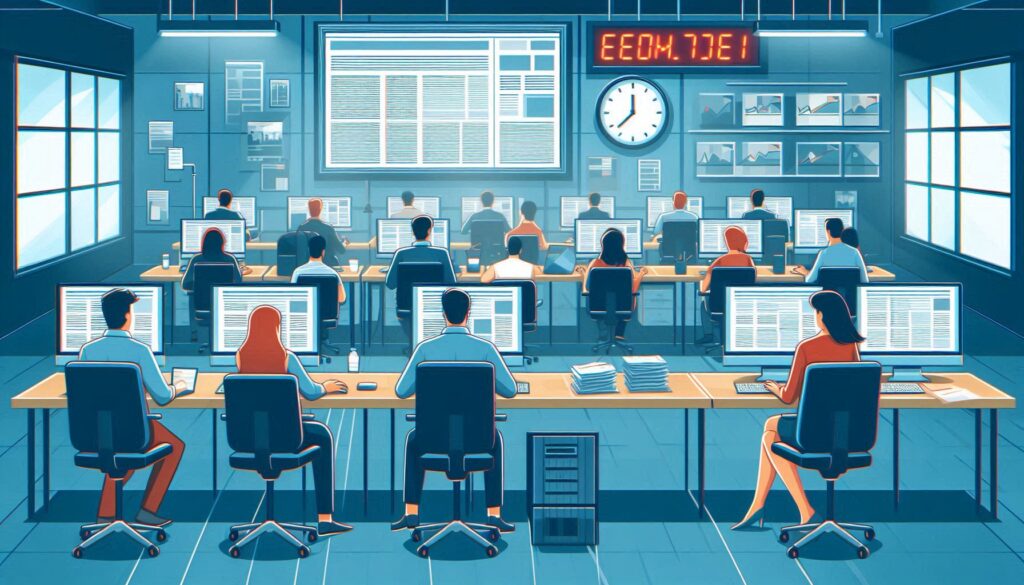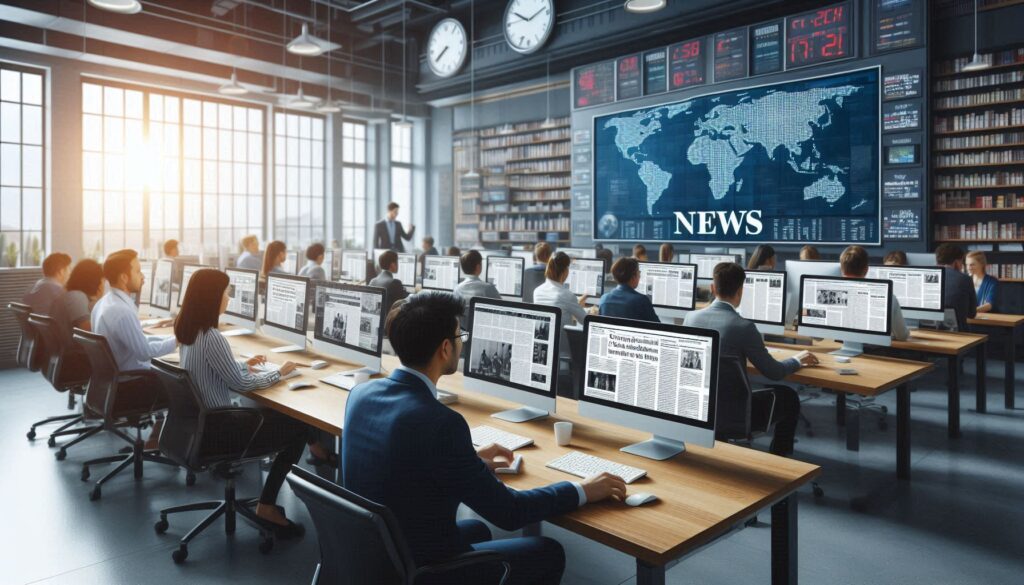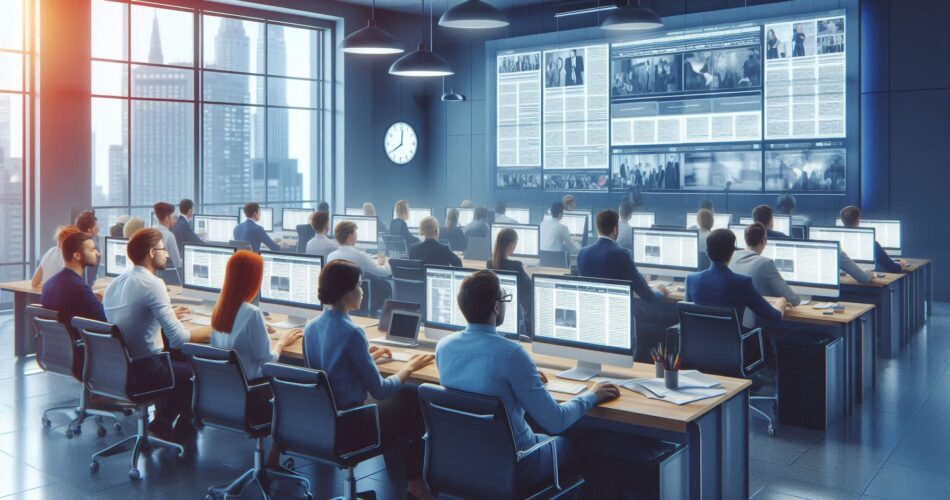In the fast-paced travel industry, the computer reservation system news (CRS) is key. It changes how hotels book rooms and welcome guests. This article dives into CRS, covering its role, main parts, and benefits for hotels and guests.
The CRS has grown to be a vital tool. It helps hotels make booking easier, improve guest service, and grow their business. Knowing how CRS works can help hotel owners stay ahead and serve their guests better.
Key Takeaways
- Computer reservation systems are essential for the efficient management of hotel bookings and guest accommodations.
- CRS technology enables hotels to streamline their operations, improve productivity, and enhance the overall customer experience.
- Understanding the key components and functionalities of CRS is crucial for hoteliers to leverage this powerful tool effectively.
- Integrating CRS with other systems, such as global distribution systems, can further optimize hotel operations and guest services.
- Addressing the challenges and limitations of CRS is necessary for hotels to continuously improve their reservation management capabilities.
Introduction to Computer Reservation Systems
In the world of travel and hospitality, the computer reservation system (CRS) is a big deal. It helps manage bookings, inventory, and customer data for hotels, airlines, and more.
What is a Computer Reservation System?
A computer reservation system is a database for travel services. It stores and updates info on rooms, flights, prices, and customer likes. CRS makes travel businesses run smoother, improve customer service, and grow their sales.

The Role of CRS in the Travel Industry
The computer reservation system is key in travel. It helps manage bookings, inventory, and customer info. This lets travel providers:
- Manage availability and prices easily across different platforms
- Give personalized services and tips based on what customers like
- Make booking faster and less prone to mistakes
- Use data to make smart business choices and improve operations
Using computer reservation systems helps travel businesses please customers, increase earnings, and stay competitive.
Key Components of a Computer Reservation System
A computer reservation system (CRS) is vital for hotels and the travel industry. It’s the heart of operations. These systems have key parts that work together to make hotel management smoother and improve guest experiences.
At the center of a CRS are several important features:
- Booking Management: It makes booking and reservations easy. Hotels can manage room availability, rates, and guest details without trouble.
- Inventory Control: CRS technology helps manage room inventory in real-time. This ensures hotels can keep rooms filled to the right level.
- Customer Data Management: A good CRS keeps all guest data in one place. This includes contact info, preferences, and past bookings. It helps hotels offer personalized services and marketing.
- Reporting and Analytics: A hotel computer reservation system offers detailed reports and analytics. This gives hotels the insights they need to make better decisions and improve.
These main parts work together to make hotel management efficient. They help hoteliers improve their operations, enhance guest experiences, and increase profits.
| CRS Component | Key Functionality |
|---|---|
| Booking Management | Seamless reservation processing, room availability tracking, and rate management |
| Inventory Control | Real-time inventory monitoring and updates to maintain optimal occupancy |
| Customer Data Management | Comprehensive guest data storage and organization for personalized service |
| Reporting and Analytics | Detailed insights and data-driven decision support for hotel operations |
Benefits of Using a Computer Reservation System
Using a computer reservation system brings many benefits to hotels, airlines, and travel businesses. It makes things more efficient and improves customer experiences. A good hotel computer reservation system offers lots of advantages.
Improved Efficiency and Productivity
A computer reservation system automates many tasks. It manages reservations, inventory, and customer data in one place. This means less manual work and fewer mistakes.
Booking times get faster, and resources are used better. This leads to more efficiency and productivity.
Enhanced Customer Experience
A good computer reservation system also makes customers happier. It gives real-time updates and personalized suggestions. Booking and checking in/out is smooth.
It also remembers customer preferences and history. This lets businesses offer services that fit each customer’s needs. It builds loyalty and satisfaction.
“A robust computer reservation system is the backbone of a successful travel-related business, driving efficiency, productivity, and customer delight.”
computer reservation system news
The computer reservation system industry is changing fast. New technologies are making travel and hospitality businesses more efficient. They also improve customer experience and connect better with other systems.
Cloud-based computer reservation systems are becoming more popular. They offer flexibility, scalability, and easy access. This helps businesses run smoother and serve their clients better.
Artificial intelligence (AI) and machine learning are also big changes. They make computer reservation systems smarter. Now, they can suggest personalized options, book automatically, and predict what customers might want next.
“The integration of AI and machine learning in computer reservation systems has been a game-changer, allowing us to deliver a more seamless and tailored experience for our customers,” says Jane Doe, Chief Technology Officer at a leading travel agency.
There’s also a big push for sustainability in the computer reservation system world. Many systems now help with eco-friendly actions. They offer paperless booking and track carbon footprints.
- Adoption of cloud-based computer reservation systems for increased flexibility and accessibility
- Integration of AI and machine learning to enhance personalization and automation
- Incorporation of sustainable features in computer reservation systems to support eco-friendly practices
The computer reservation system industry keeps growing. Travel and hospitality businesses need to keep up. They must use new tech to stay ahead and give their customers the best experience.

Integration with Other Systems
In today’s fast-changing travel and hospitality world, the computer reservation system (CRS) is key. It helps link different tech platforms smoothly. One big win is linking CRS with global distribution systems (GDS).
Linking the computer reservation system with GDS brings many benefits. It lets travel companies share data better. This gives a clearer view of customer info, booking trends, and industry news. It also makes work flow better, cuts down on mistakes, and boosts productivity.
Connecting CRS with Global Distribution Systems
CRS and GDS integration offers a complete view of travel management. The main benefits include:
- Easy access to real-time data: Travel companies can see availability, prices, and stock levels across many platforms. This helps them make better choices and offer top deals to customers.
- Better customer service: The smooth link between the hotel computer reservation system and GDS makes booking easier and more personal. This leads to happier customers and more loyalty.
- Efficient workflows: The integration automates tasks like managing stock and confirming bookings. This cuts down on manual work and reduces errors.
- More chances to make money: With GDS, travel companies can reach more people. This opens up new ways to make money.
As the travel industry keeps growing, linking computer reservation systems with GDS is a smart move. It helps travel companies stay ahead and give their customers the best service.
Challenges and Limitations of CRS
Computer reservation systems (CRS) have changed the hospitality industry a lot. But, they face some big challenges. One major issue is keeping customer data safe. CRS systems deal with sensitive info like payment details and personal preferences.
It’s very important to protect this data from cyber threats. This is because more and more attacks are happening online.
CRS also need to grow with businesses. They must handle more bookings and meet the needs of hotels, airlines, and travel providers. If a CRS can’t grow, it might not work well anymore.
Finally, CRS need to be updated often. This keeps them working well with new tech, rules, and what customers want. If a CRS isn’t updated, it can cause problems and make users unhappy.

 For the past 5 years, I've been obsessed with the power of words and how they can help businesses like yours thrive online.
For the past 5 years, I've been obsessed with the power of words and how they can help businesses like yours thrive online.